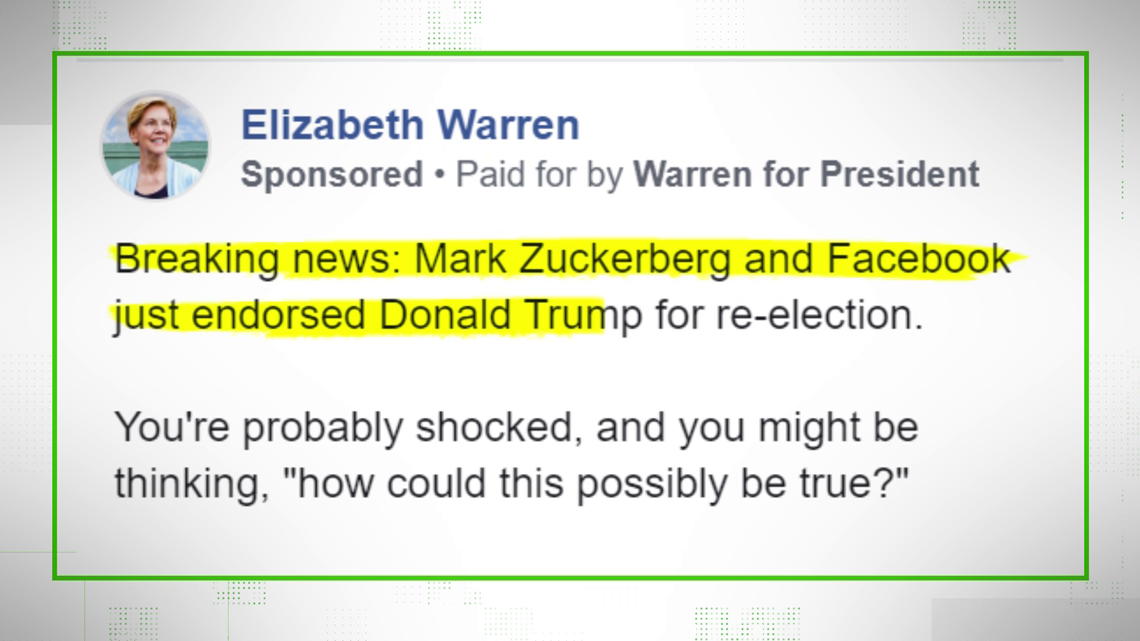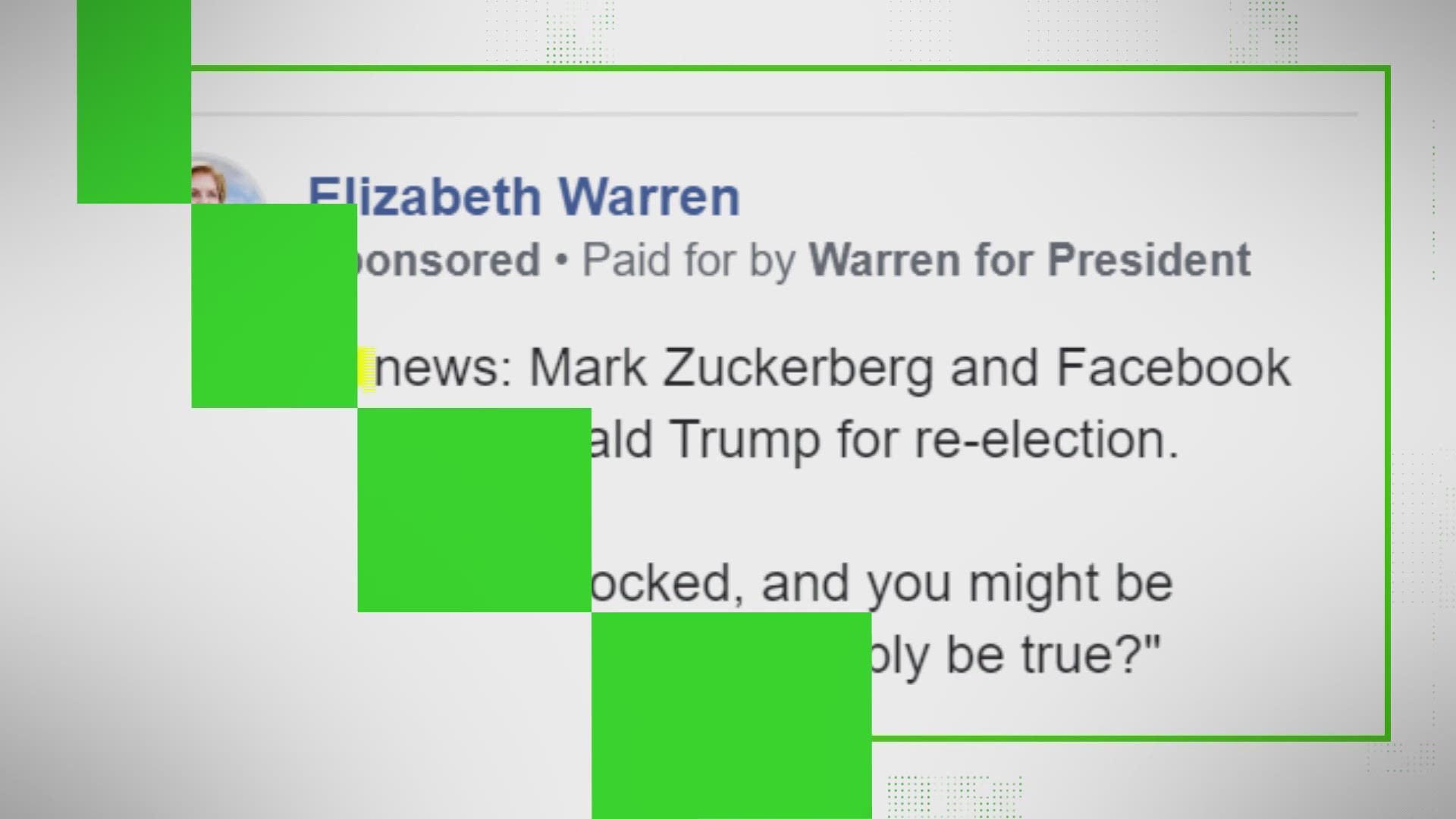“Breaking news: Mark Zuckerberg and Facebook just endorsed Donald Trump for re-election.” That’s a line you may be seeing on Facebook right now. Before we go any further, you should know three things:
1.) It’s a real Facebook ad, but the claim it makes is completely false.
2.) It’s an ad from Democratic presidential candidate Elizabeth Warren.
3.) The ad is intentionally false.
The campaign ad, which can be found on Facebook’s ad library, begins with “Breaking news: Mark Zuckerberg and Facebook just endorsed Donald Trump for re-election.”
Just to reiterate: Zuckerberg has not publicly endorsed any 2020 presidential candidate.
The ad continues by stating that the opening line and the headline for the ad are false. So if the person promoting the ad admits it’s false--even doing so within the ad itself--what’s the purpose?
Warren explained that she put up this ad in response to what she called Facebook's policy regarding falsehoods in political ads. Facebook has stated that they believe taking down a claim directly from a politician is censoring that politician’s free speech.


This all stems from a recent ad President Donald Trump put out about Joe Biden, alleging he paid $1 billion to remove a prosecutor who was investigating Biden’s son. As was stated in a previous VERIFY, Biden traveled to Ukraine in 2016 to tell their leaders the U.S. would withhold $1 billion in loan guarantees if they did not remove the Prosecutor General. Prior to that visit, the U.S. and allies such as the U.K. were trying to get the Prosecutor General removed because of corruption and there is no evidence that Biden acted to help his son.
CNN declined to run that Trump ad on their network because they said it violated their standards and NBC Universal stopped airing it shortly after they began. The ad continues to run on Facebook, Twitter, YouTube and select television stations across the country.
The Biden campaign sent a letter asking Facebook to remove the ad saying it spreads “false, definitively debunked conspiracy theories.” The Biden campaign then quoted Facebook’s pledge to reject political advertising with previously debunked content.
In their response, Facebook stated that claims made directly by a politician on their page, in ads or on their website are direct speech and thus are treated differently. They included Trump’s ad in this and thus decided not to remove it.
Warren has criticized Facebook for this decision. Facebook responded directly to Warren on Twitter on October 12.
They defended themselves by comparing their platform to broadcast TV stations.
According to them, FCC rules require TV stations run any political ads to avoid companies censoring candidates speech.
“We agree it’s better to let voters --- not companies --- decide,” they wrote.
Warren’s ad campaign began soon after to see if it would get approved. Facebook approved the ad quickly, according to Warren.
Trump’s ad campaign ended October 6, according to Facebook’s ad library. Warren’s campaign is still ongoing.
Zuckerberg spoke about his personal stance on this in an interview with the Washington Post on Thursday, “People worry, and I worry deeply, too, about an erosion of truth,” he told the paper. “At the same time, I don’t think people want to live in a world where you can only say things that tech companies decide are 100 percent true. And I think that those tensions are something we have to live with.”
Something you’d like VERIFIED? Click here to submit your story

